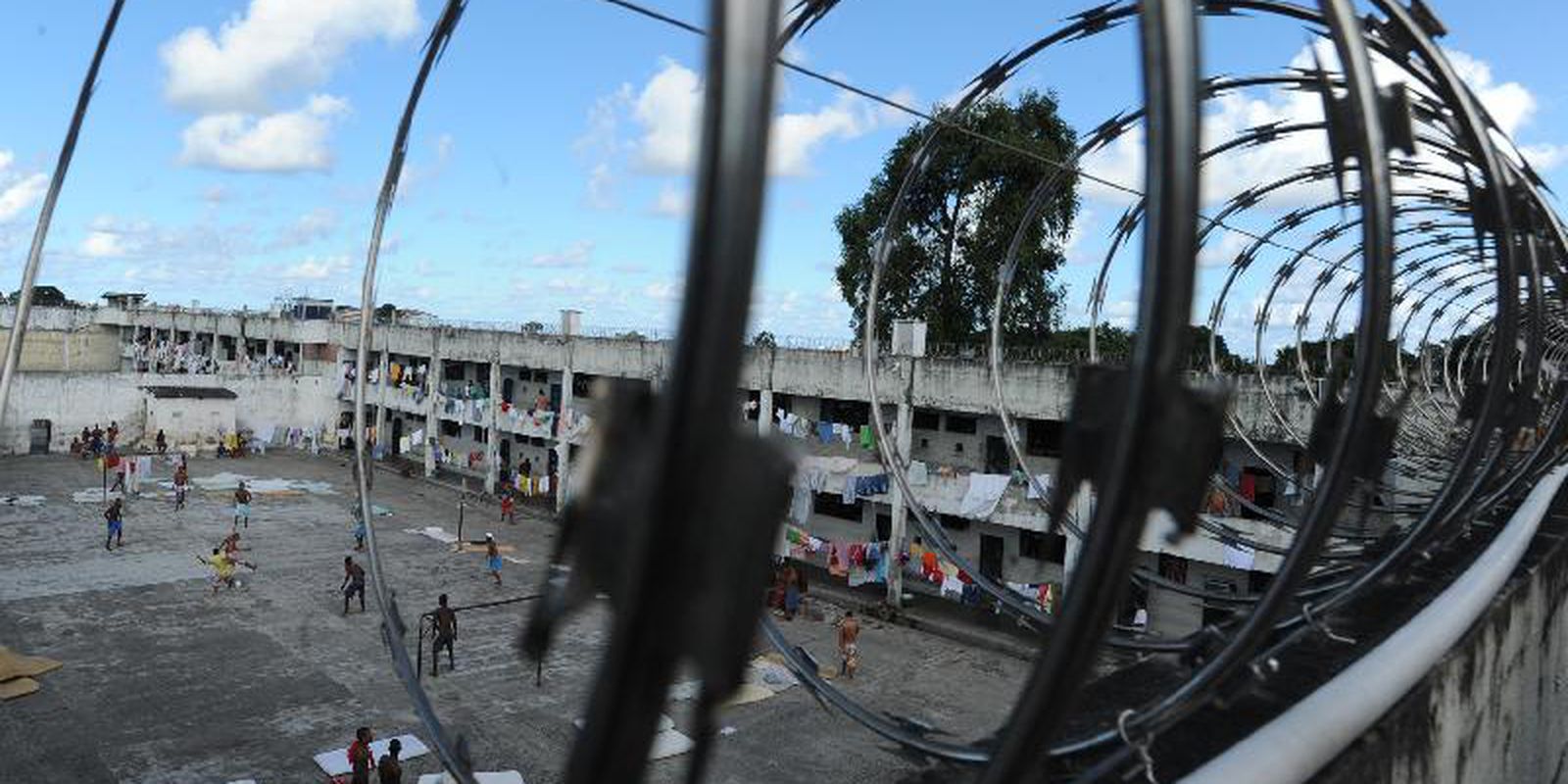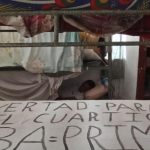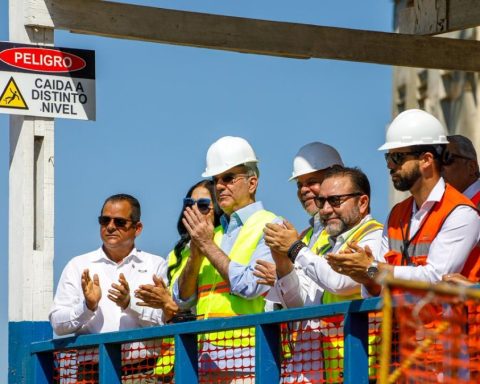Overcrowding and poor conditions in Brazilian prisons are the roots of the emergence of criminal factions in the country, says sociology doctor Camila Nunes Dias, professor at the Federal University of ABC Paulista, one of the authors of the book A Guerra A ascendado do PCC e the World of Crime in Brazil.
For the specialist, the power of these organizations will only decrease when the Public Power directly confronts the problem in Brazilian prisons. According to Dias, “not only if you bet on repression with the police, with a tough regime, with guns, bombs (…) you won’t have any kind of advance”.
“As long as prisons continue to be hotbeds for criminal groups, we will not solve the problem. The fire will go out and in a year or six months, we will be talking about the subject again because a new crisis is happening and that’s how it is.” , cyclical”, he argued.
In an interview with National Radiothe specialist in issues related to the prison system, organized crime and public security talks about the history and performance of these organizations in Brazil after attacks promoted by a criminal faction in Rio Grande do Norte and the operation of the Federal Police, which arrested suspects with plans for the kidnapping and homicide of authorities and public servants.
Check out key excerpts from the interview:
National Radio: What is the origin of these organizations, such as the PCC [Primeiro Comando da Capital]from São Paulo, and the Crime Syndicate, which has been held responsible for the attacks in Rio Grande do Norte?
Camila Nunes Dias: There is something in common between these organizations. These are groups that we usually call factions. They originate within prison establishments and are linked to the claim against existing oppression within prisons. It is a claim for rights.
The Brazilian prison system violates rights, always has been and continues to be. These groups arise in this context. The Crime Syndicate, in Rio Grande do Norte, emerged in 2013 already in a context of reaction to the PCC, which was spreading throughout Brazil.
National Radio: Does the emergence of the PCC have any connection with the Carandiru massacre?
Camila Nunes Dias: Yes, it is directly related. The PCC emerged in 1993, the Carandiru massacre was in 1992. The emergence of the PCC is a kind of union of prisoners against what they understood to be a threat to their security. the state government [de São Paulo], through the Military Police, promoted a massacre of 111 prisoners. Who says it wouldn’t happen again? It was in this context that the PCC was created.
National Radio: Regarding the attacks in Rio Grande do Norte, some lines of investigation point out that the actions would be a retaliation against the conditions of the state’s prisons. Do you think this is it? After all, what is behind these attacks?
Camila Nunes Dias: From my understanding, that’s right. We cannot assume that people are repeatedly tortured in prisons, as is the case in Rio Grande do Norte. In several reports, including the most recent at the end of last year, there are reports of atrocities committed against prisoners by public servants and negligence, omissions by authorities that did nothing to prevent, punish or interrupt this process. We cannot assume that this will continue like this, indefinitely, and there will be no reaction.
Unfortunately, since 2017, social, family and other movements have been denouncing these prison conditions, but nothing has been done.
When a very serious violence suffered by a population is ignored, I am not talking about banal violence, but a crime [cometido por] public agents and goes unpunished. Unfortunately, sometimes the violent response is the only one heard. Now, at least, everyone is talking about it. It took this violence in the streets for society in general to talk about this issue.
National Radio: About the PCC operation that planned to kidnap authorities and public servants, what can you say about this case with the information we have so far? What did they want with this action of monitoring servers and authorities?
Camila Nunes Dias: So far, there has been a great deal of confusion, at least as far as what I follow in the press in relation to these cases. I saw some cases saying that they intended, in the case of Senator Sérgio Moro, to kidnap and execute. Based on press reports, if it’s a kidnapping you have a goal: it could be an exchange for a prisoner or someone who is in prison, money. If you want to execute, the objective is different. You want to kill and there’s no logic involved, it’s revenge, because since the Sérgio Moro administration, intimate visits to federal prisons have been interrupted.
So it’s pretty confusing at the moment. I’m following it through the press, but the understanding of this, and only part of it, will only happen when we understand exactly what happened.
The prosecutor Lincoln Gakiya is another case, which has nothing to do with the material found related to Senator Sérgio Moro and is being publicized as if it were the same thing. Prosecutor Lincoln has been threatened by the PCC for many years. He has been at the forefront of fighting the PCC in São Paulo for a long time, through GAECO [Grupo de Atuação Especial de Repressão ao Crime Organizado de São Paulo] and for many years he has been under threat.
We have to better clarify what was actually found, the investigation how it happened. Even to understand what was intended, because the way it is being conveyed, for me, it makes no sense. It is not the first time that there have been attacks against authorities, but the PCC has changed its coping strategy a little throughout its history, because against authorities they tend to go wrong and generate losses.
National Radio: Given your experience with criminal organizations in Brazil, what could the State do to undermine their power and reduce the influence they demonstrate in the national territory?
Camila Nunes Dias: The power of the factions will only be reduced when you face what produced these groups. As long as the only bet is on repressing them with the police, with a tough regime, with guns, bombs (…) there will be no progress. The causes have to be faced.
The primary cause is overcrowding and poor prison conditions. As long as prisons continue to be hotbeds for criminal groups, we will not solve the problem. The fire will be put out and in a year or six months, we will be talking about the subject again because a new crisis is happening and it is like that, cyclical.
I’ve been studying PCC since 2007 and it’s always been like this. Nobody talks about the subject, about the arrests. When something happens, the reasons are the same, the actors change, the places change and some groups, like the PCC, disappear, others disappear. But the seed, the origin of conflicts, the effect of violence they produce are always similar.

















